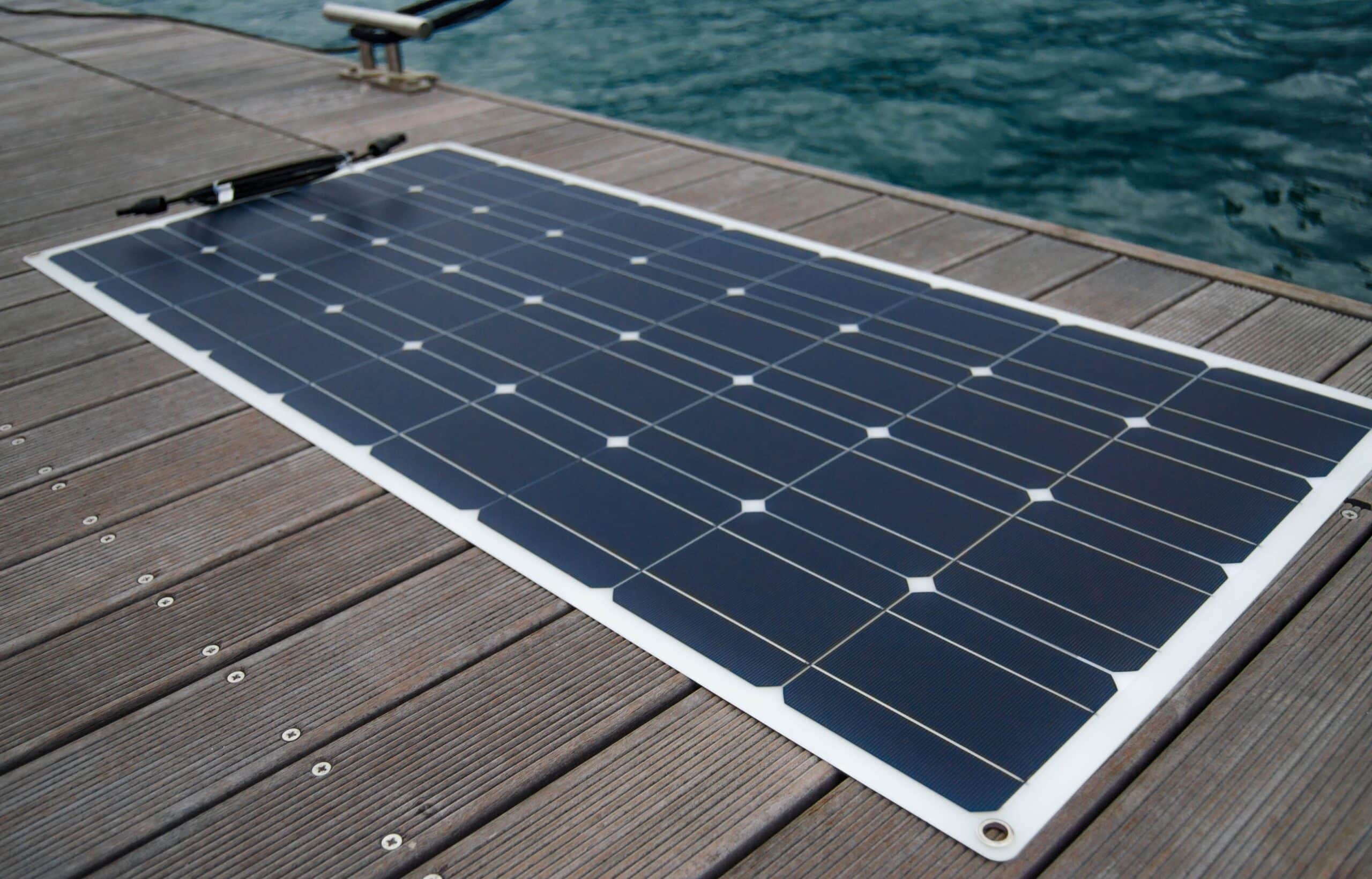
Do you want a renewable energy source you can use when traveling? Consider installing flexible solar panels from Verde Solutions.
Whether you own a van, a boat, or a tiny home, these panels make a living off the grid much more accessible and provide several benefits over traditional solar panels. Keep reading to discover everything you should know about them.
Summary
- Flexible solar panels are lightweight, easy to install, and versatile.
- They are less efficient but more durable against impacts & offer a lower upfront cost.
- Consider power needs, efficiency, flexibility, and warranty when choosing panels.
What Are Flexible Solar Panels?
Also known as bendable renewable energy encasements, these solar panels use the same photovoltaic technology as traditional panels, but their construction makes them more flexible, portable, and versatile. While they work best when strategically paired with rigid panels, they still provide significant benefits if used alone.
How Bendable Solar Panels Work
These solar panels work precisely like traditional solar panels, using monocrystalline or polycrystalline cells to absorb sunlight and generate electricity. You can use the generated electricity immediately or store it in static or portable batteries for later.
Types of Flexible Solar Energy Panels
Portable solar panels come in two forms:
- Thin film solar panels: These panels print the PV cells onto a flexible surface, usually only a few micrometers thick. Popular materials include cadmium telluride, copper indium gallium selenide, and amorphous silicon.
- Crystalline silicon cells: As the more popular option, these use the same materials as traditional panels but form them into a bendable wafer-like shape you can mold to fit onto irregular surfaces.
The Benefits and Disadvantages of Foldable Solar Panels
While bendable solar panels have some significant advantages over their rigid counterparts, they also have disadvantages. Weigh these pros and cons before determining when and how to use flexible panels.
Pro: Easy Installation
Pliable solar panels require less work for proper installation. They don’t need support structures like mounting brackets because they can mold to the surface you install them on. This also means you won’t drill permanent holes in your RV or boat. You can easily install them with industrial adhesives or double-sided acrylic foam tapes.
However, even with their easy installation, you should take advantage of everything. Poorly installing flexible panels just wastes your money. Always have a professional install the panels so you can stay confident they’ll work.
Pro: Lightweight
As opposed to buildings with strong roofs that can support considerable weight, flexible panels work well for vehicles or buildings with weight requirements. For example, if you install them on your boat, you want to avoid heavy panels that could lower your fuel economy or make you sit lower in the water. While they likely can’t power your boat or RV, they can provide for the majority of your electrical needs.
Pro: Aesthetics
One of people’s biggest complaints about rigid solar panels is how bulky they look. They often protrude from the roof, disrupting the natural silhouette of a once beautiful building.
With bendable solar panels, you won’t have to worry about that. Because they mold to the building surface, you can easily implement them without significantly changing the appearance of your property.
Pro: Bendability
You can bend flexible solar panels up to 258 degrees, or almost three-quarters of a full circle. For example, if you have a classic airstream camper with an iconic curved roof, you can easily mold the solar panel to fit the vehicle’s natural shape. They work well on yachts, whose sleek and luxurious appearance often involves smooth curves rather than straight lines.
Pro: Affordability
Because they use more cost-effective materials and offer easy installation, bendable solar panels require a much smaller upfront investment than traditional versions. They are perfect for casual users, people with small homes, or those who want to try out solar panels before committing to more permanent models.
Pro: Durability
Flexible panels generally withstand impacts better than their rigid counterparts. If you worry about hail or debris hitting and cracking your panels, you’ll love the resilience of bendable panels.
Con: Energy Efficiency
The biggest disadvantage of pliable energy cells is their significantly reduced efficiency, which is why they can’t power an average-sized home or run an RV for very long. Whereas rigid panels convert around 20% of the sunlight they absorb into electricity, flexible models maintain efficiency ratings closer to 10-15%.
What does this mean for practical use? A 100-watt flexible panel can power a boat for around two or three hours, whereas an RV may require a more robust 200-watt model for the same results.
Con: Lifespan
While rigid panels can last up to 40 years, pliable models have five to 20 years of life expectancies. However, as technology advances, you can expect the lifespan to improve.
Who Can Use These Lightweight Solar Panels?
Who can best utilize portable solar panels? They work best in the following situations.
Recreational Vehicles
Boats and RVs provide the perfect opportunity to utilize flexible panels. The vehicles frequently have accessories like satellite dishes, vents, and other obstructions that can prevent fully installing rigid panels. While a combination of the two types of panels provides the most access to off-the-grid power, using only flexible panels is a viable alternative for many RV and boat owners.
Limited Home Use
Flexible panels can fill gaps where rigid solar panels don’t work. For example, suppose you have a roof with many valleys or an inconveniently placed chimney. In that case, installing flexible panels can provide the extra boost of power you need to avoid using the utility company.
Portable Applications
Are you going on a long hike and want power for your phone or other electronics to help you stay comfortable? Don’t underestimate the convenience of a portable solar panel, which you can even strap onto your backpack. Pair it with a portable battery for a long-term portable power solution.
Emergency Power Supplies
If your electricity goes out, you can store enough power with a flexible panel to provide a few hours. Instead of investing in a backup generator, consider solar panels.
Choosing the Right Portable Solar Panels
To help you choose the best portable solar panels for your home, Verde Solutions will help you consider the following factors:
- Determine your power needs and, as such, the level of energy efficiency you need from your solar panels. In general, the higher the efficiency, the greater the cost.
- Weigh the lifespan of your potential solar panel against how much you’ll save on electricity over its lifespan.
- Establish how much flexibility you require. Thin film solar panels bend farther than crystalline silicon cells.
- Verify your home or vehicle can handle the weight of a flexible panel.
- Choose an appropriately sized panel that balances your energy requirements and available space.
- A good warranty protects against manufacturing defects or rapid wear and tear beyond expected degradation.
Verde Solutions Offers Expert and Reliable Solar Panel Installation
Are you convinced you’d benefit from flexible solar panels? When you reach out to Verde Solutions, we help you choose the right solar panels for your needs and install them without issue. To learn more about our services or to book a consultation, call us today at 800-541-1137.

